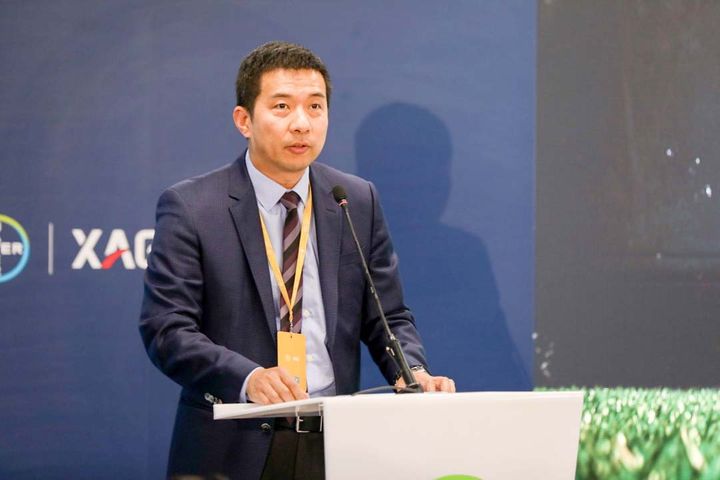 High-Grade Produce Need Not Be High Priced, Bayer Crop Science China Head Says
High-Grade Produce Need Not Be High Priced, Bayer Crop Science China Head Says(Yicai Global) Feb. 21 -- The entire agricultural sector must resolve the urgent issue that 'high-quality farm produce comes at a premium price.' Only in this way, can every link of agricultural production have the motivation and confidence to multiply investment to prevent the phenomenon of 'bad money drives out good'* within the whole sector, Huang Weidong, president of Bayer Crop Science China, recently told Yicai Global in an interview.
Thane, India-based Bayer Crop Science completed the merger and acquisition of the world's largest seed provider, St. Louis, US-headquartered The Monsanto Company last year, thus leaving it the globe's biggest producer of seeds and agrochemicals. A transcript of the Yicai Global interview with Huang appears below.
Yicai Global: What are the biggest opportunities and challenges within the sector this year?
Huang: China's agriculture is currently in an upward trajectory toward green and high-quality development and fully reflects consumers' demands for the sector. Innovation serves as the core via which such development can be achieved. We should help growers produce agricultural goods of higher quality by means of breakthroughs and innovative technologies to satisfy customers' demands for safer and healthier foods, as well as protecting the environment and ecosystem at the same time.
Yicai Global: Which policies in the sector do you think most deserve change and, how to change them?
Huang: From my personal perspective, the entire agriculture sector should urgently solve the problem of 'high-quality agricultural products only at premium prices.' We can only effectively promote the industrial transformation and upgrade of agriculture with such leverage and truly satisfy the diversified demands of consumers by urging the production end to pay actual attention to standardized management of farm produce and spur growers to actively seek advanced production technologies and agricultural investments, and only thus can every link of agricultural production have the motivation and confidence to multiply investment in this regard to forestall the phenomenon of 'bad money drives out good' within the entire sector.
This calls for the long-time efforts of policymakers and all parties in the agricultural chain and also requires the understanding and participation of all of society and its masses of consumers.
Yicai Global: Which innovations will occur with the business model?
Huang: Innovation is in Bayer's genes and is its greatest advantage. The innovation we have been devoting ourselves to lies in integrating technologies from many different fields, taking the lead in ushering in breakthroughs and reforms, and implementing risk management in agricultural production, such as by digitizing agriculture.
These innovations can also effectively help growers and other partners within the chain actively adapt to social development trends. For instance, coping with the lack of a labor force, raising efficiency, and developing in a green way. The methods may vary, but the principle of rooting in the market and creating values for growers remains unchanged.
During the reign of Queen Elizabeth I (1588-1603) England's desperate need for money caused it to issue additional currency in the form of debased coinage of the same face value. People tended to hoard coins with a higher silver and gold content and used that containing more base metal as currency, with the result that precious metal coins all disappeared from circulation. The analogy here is thus of low-quality produce driving its higher-quality counterpart from the market. The principle explaining this phenomenon is called Gresham's Law in economics after its propounder, Tudor-dynasty financier Sir Thomas Gresham (1519–1579).
Editor: Ben Armour